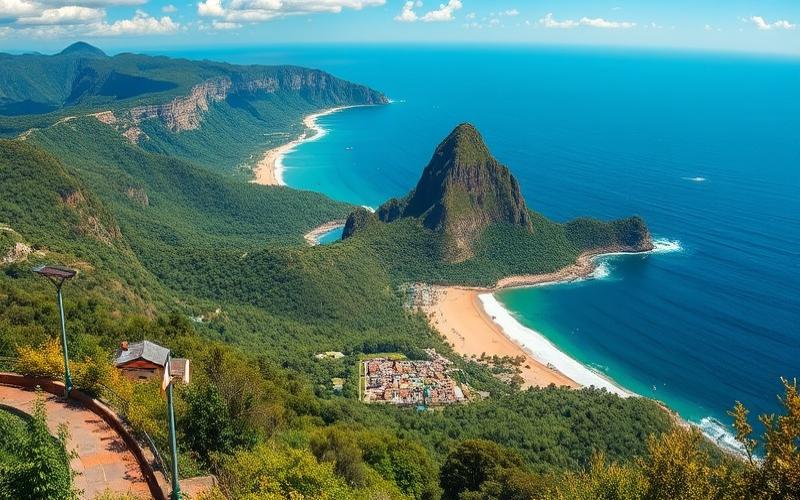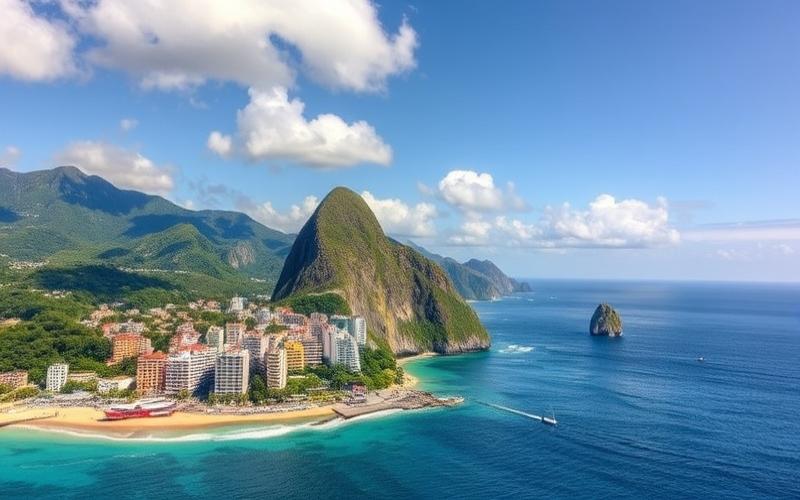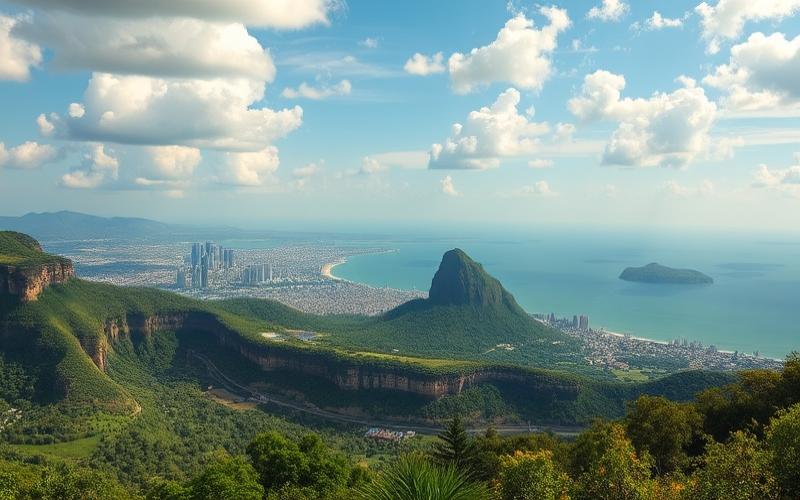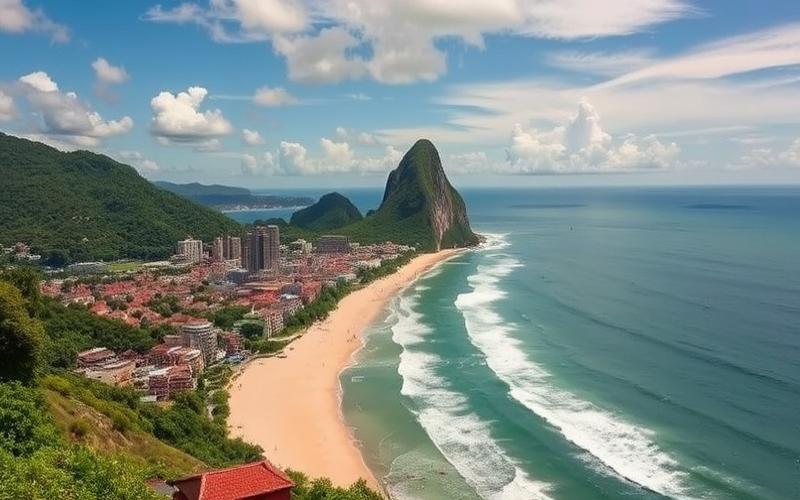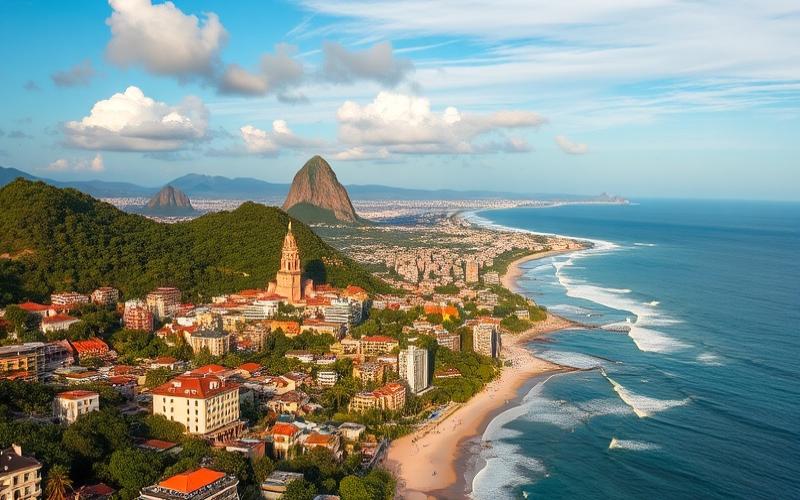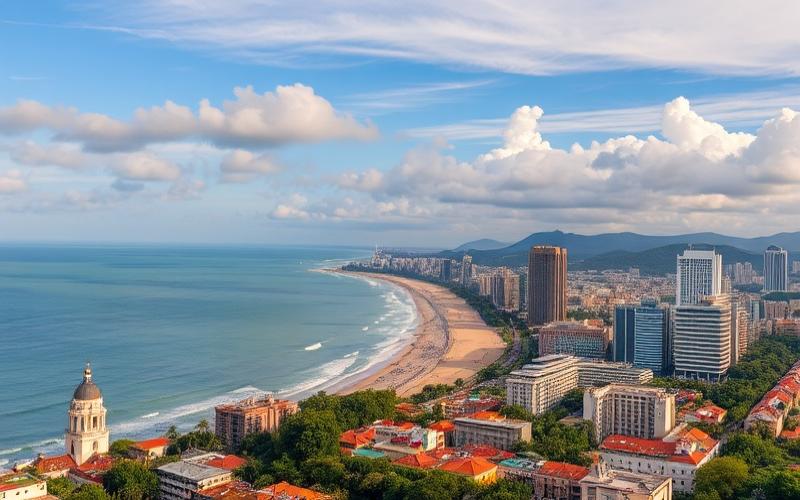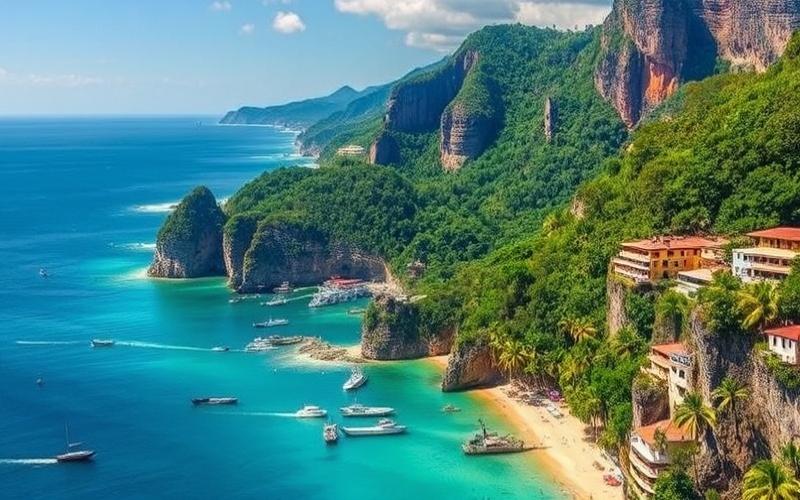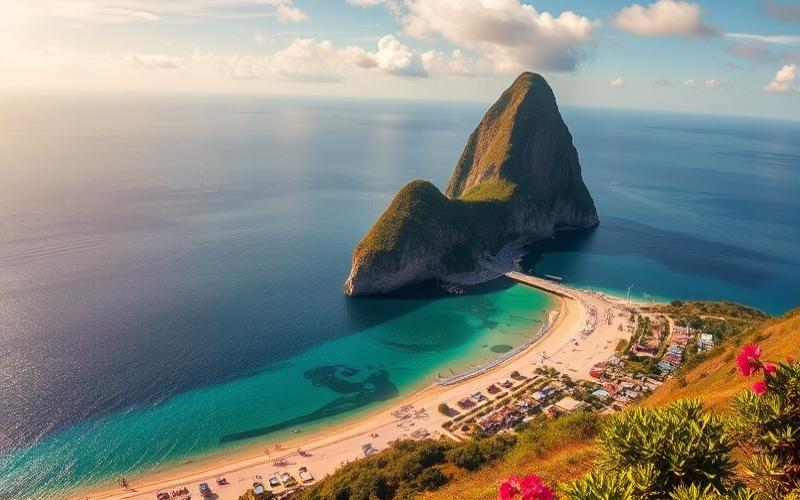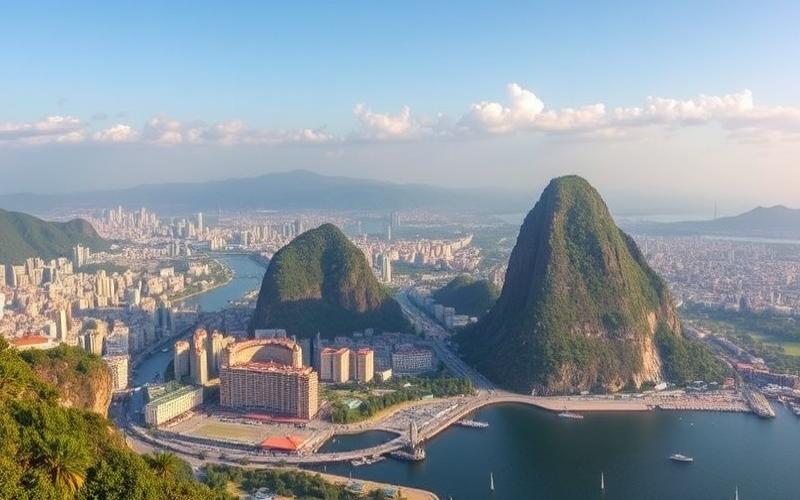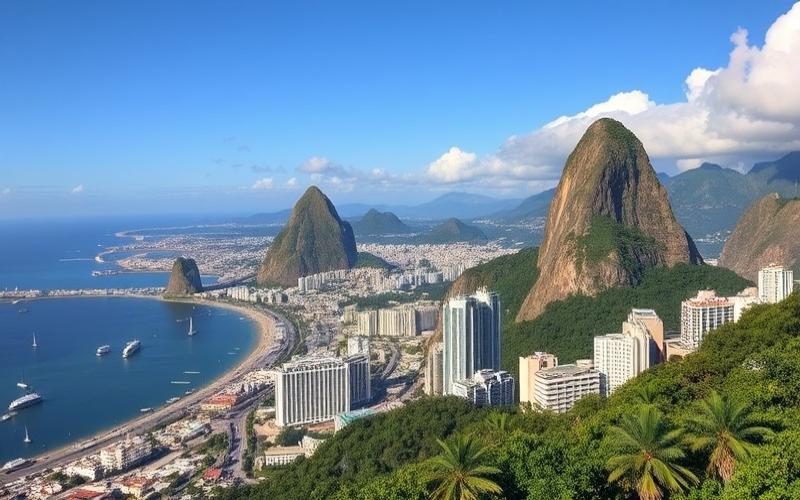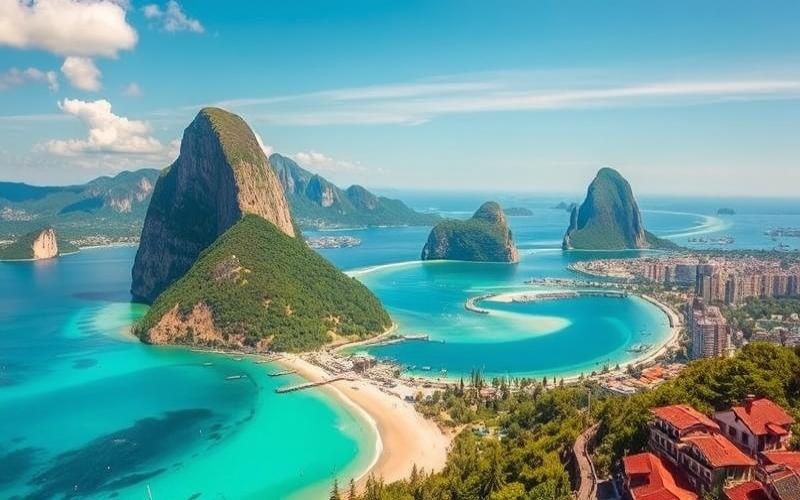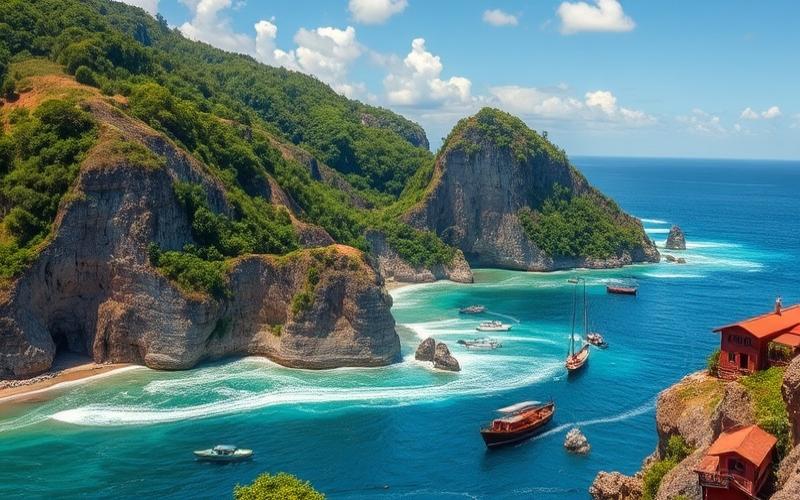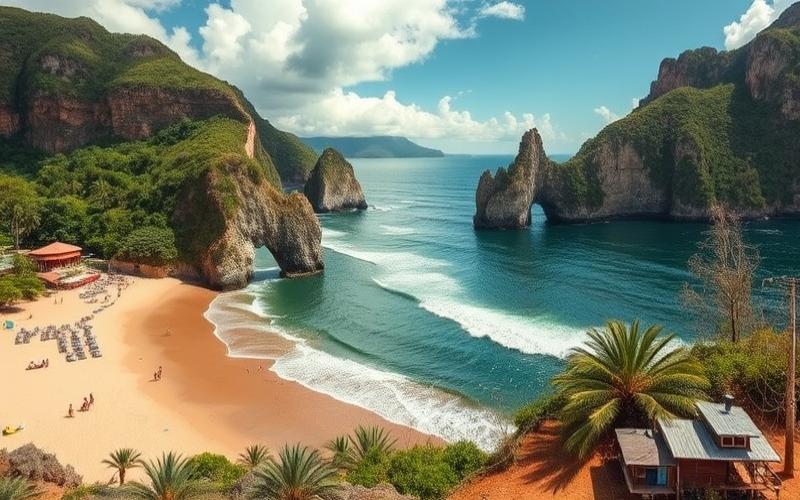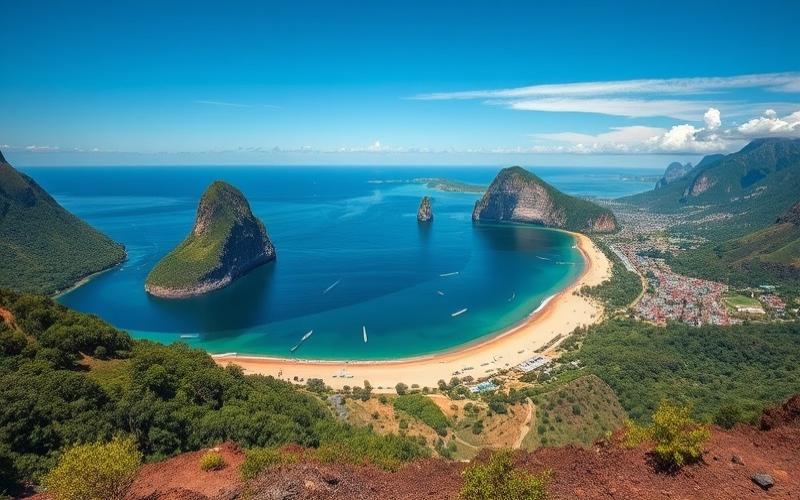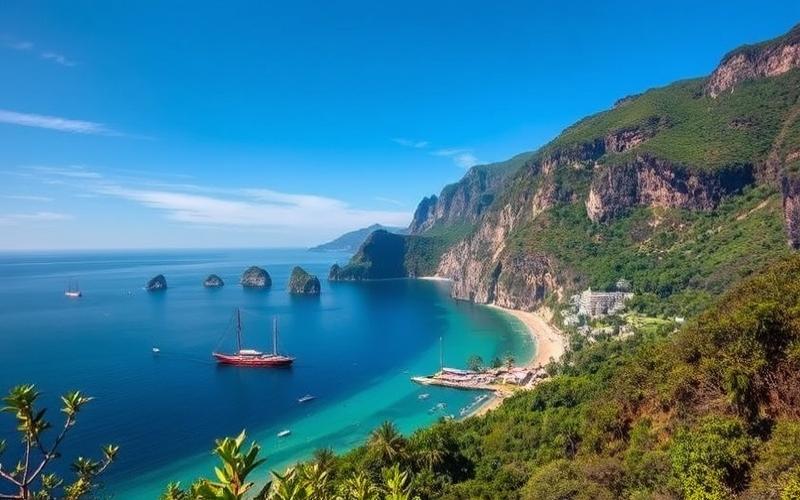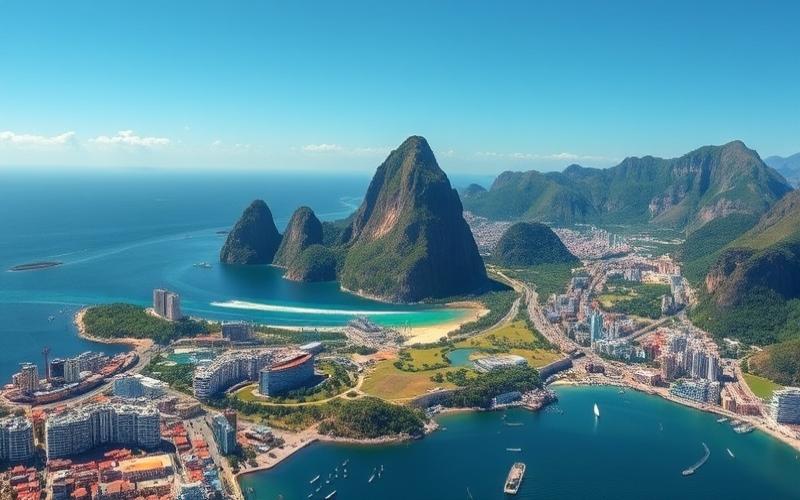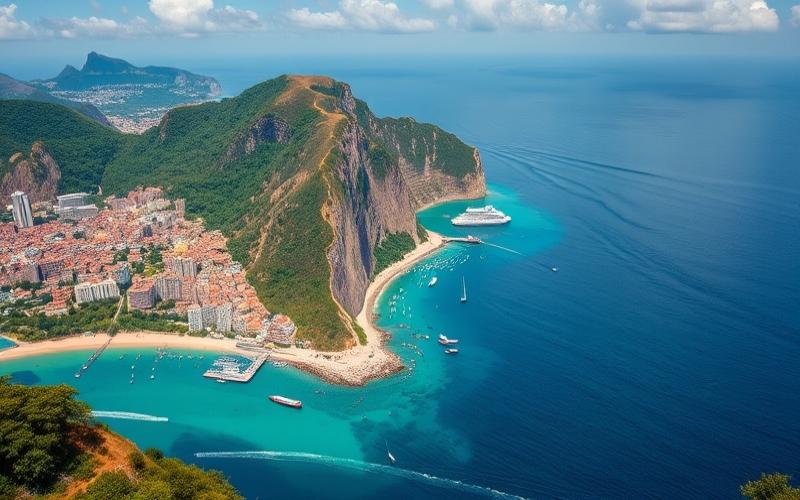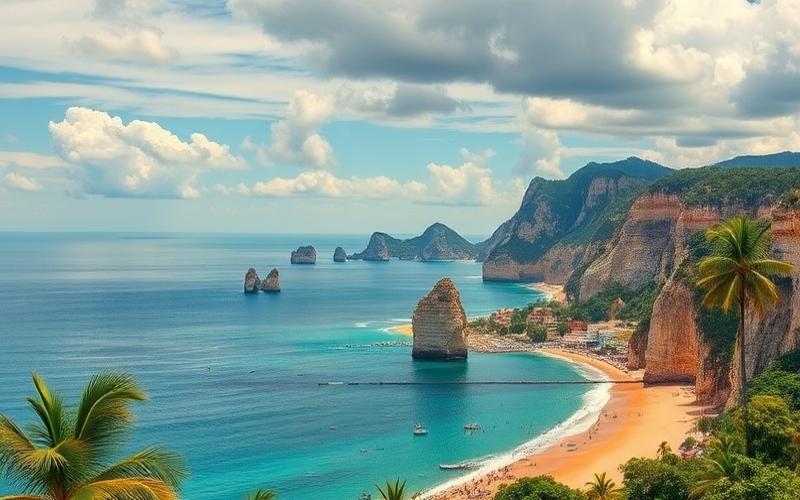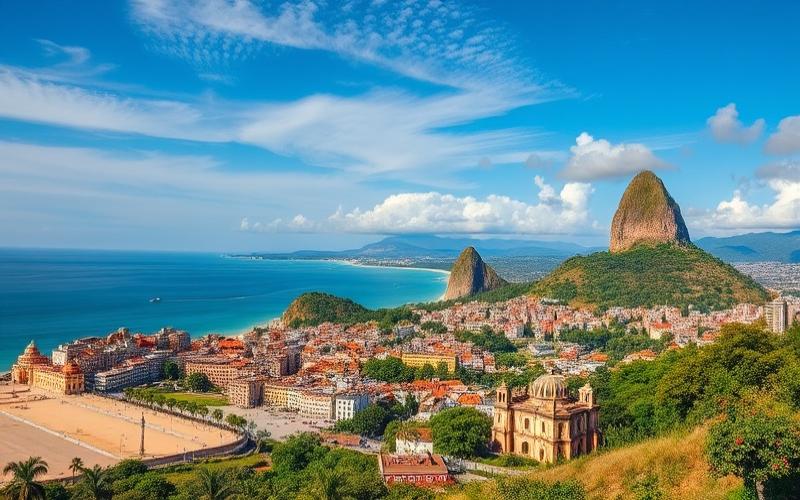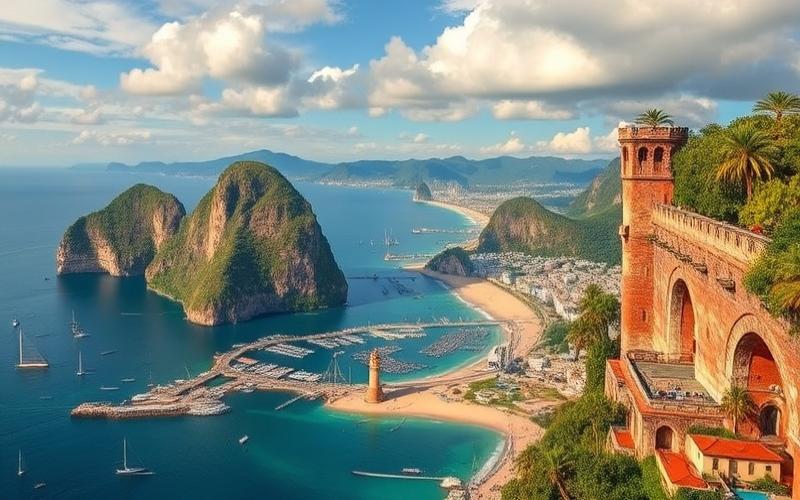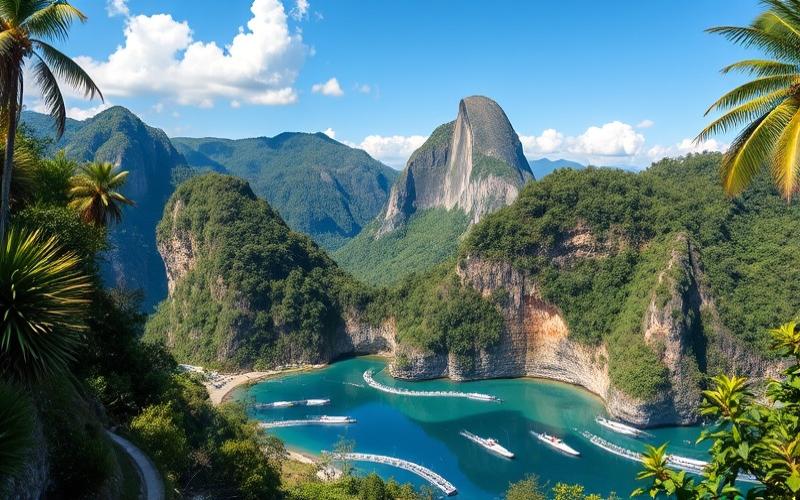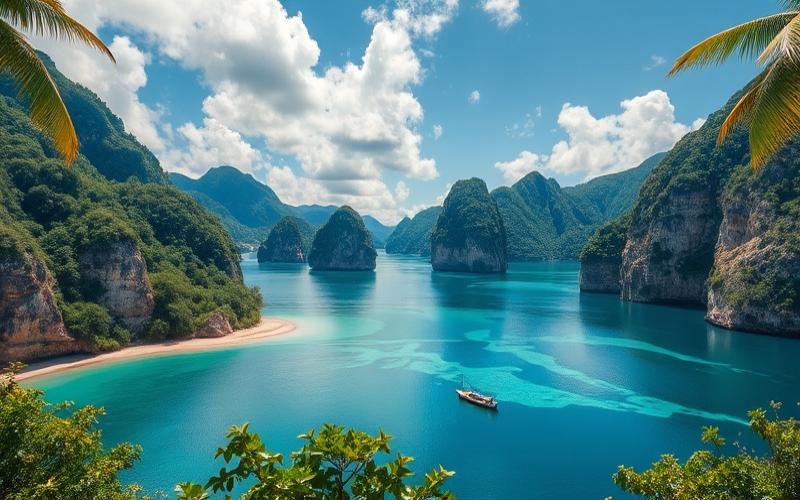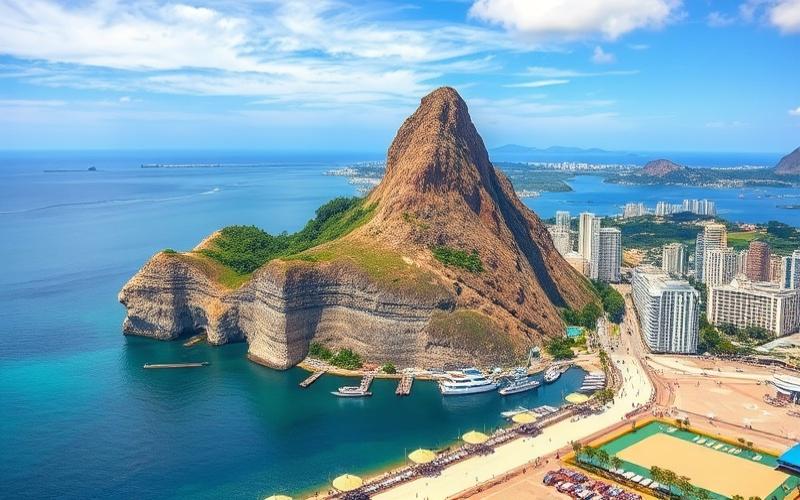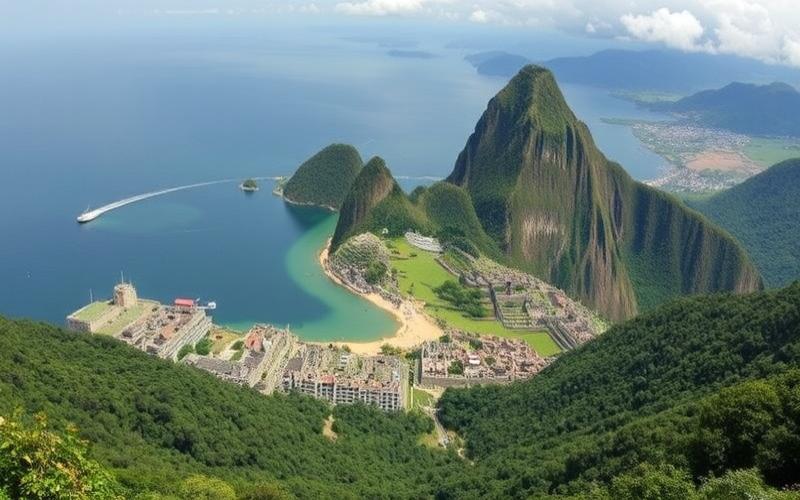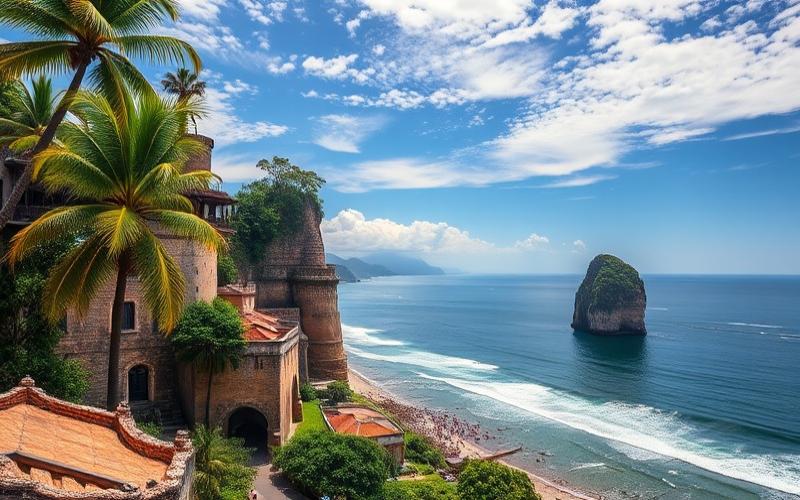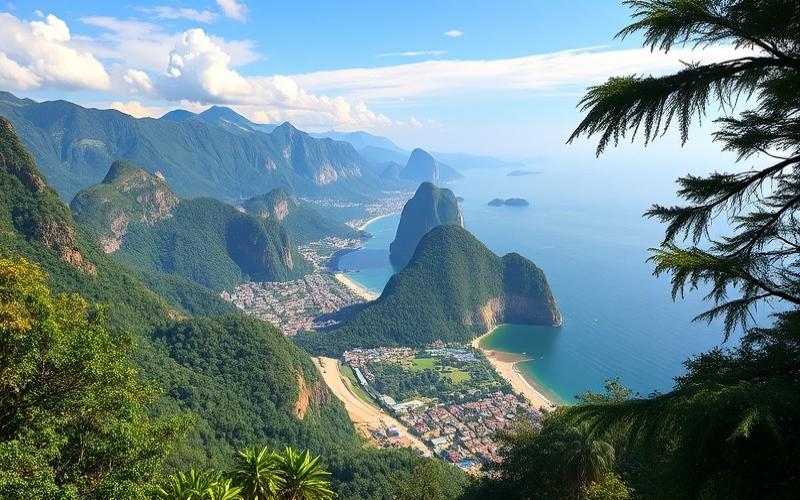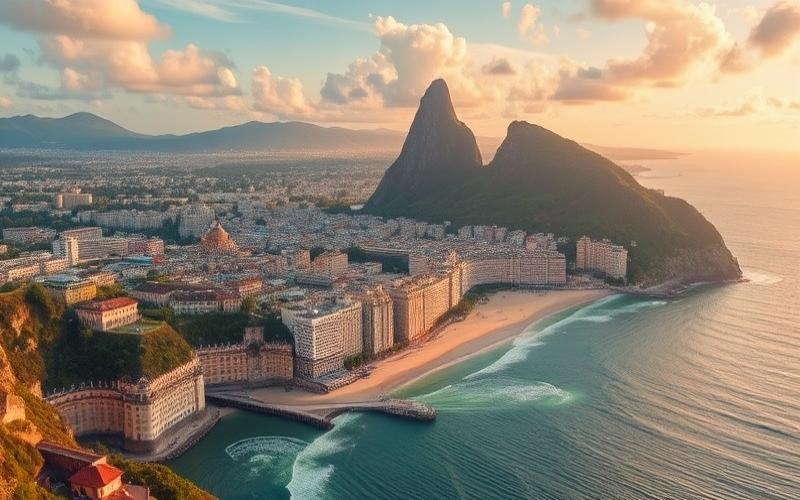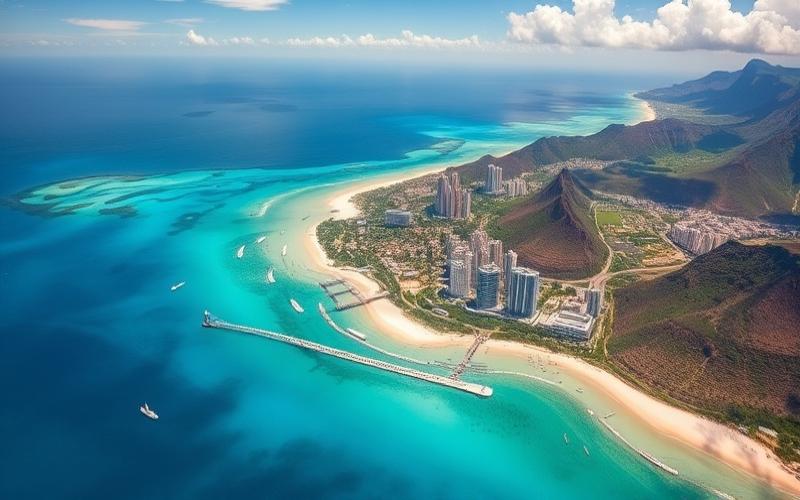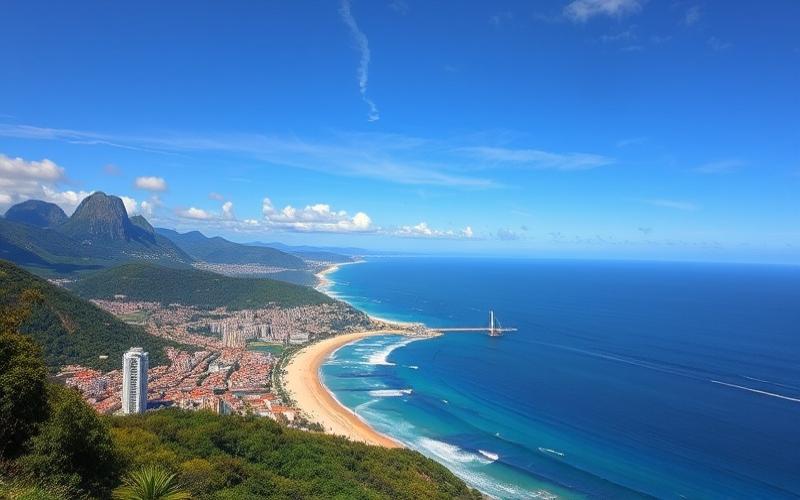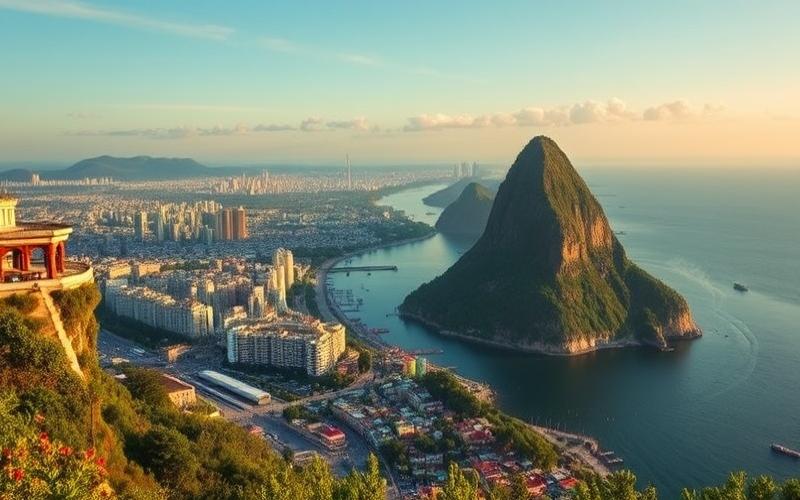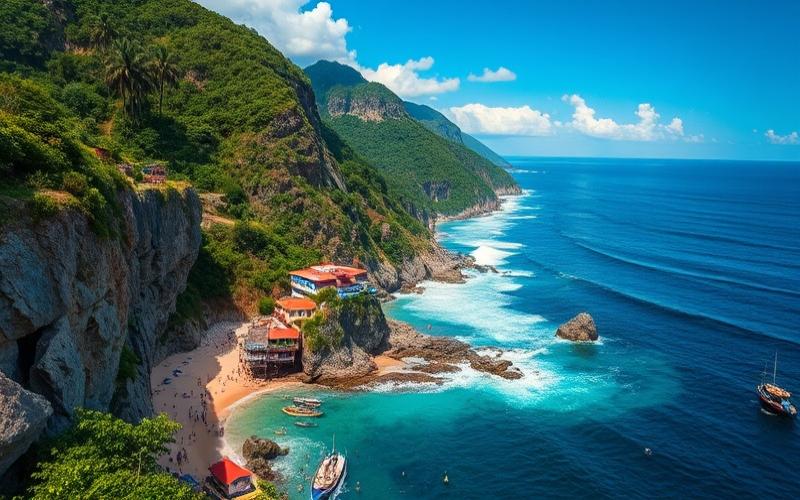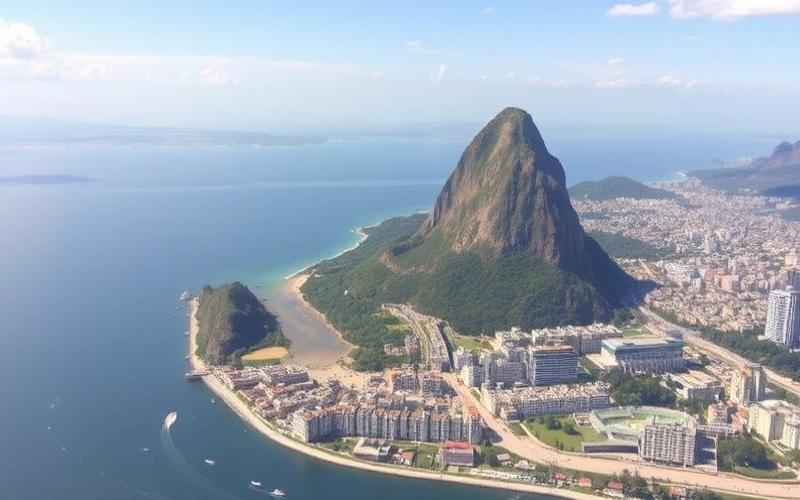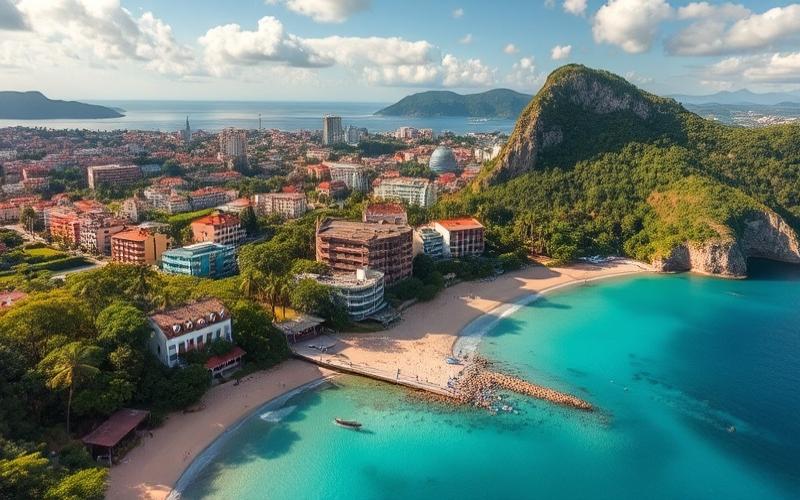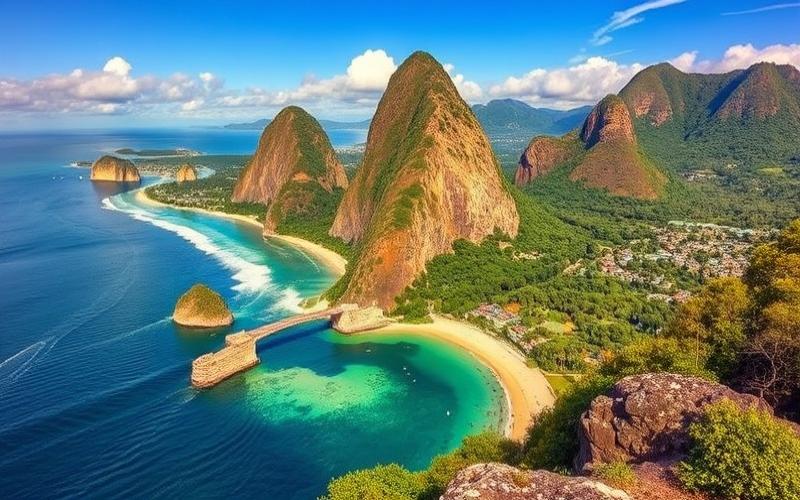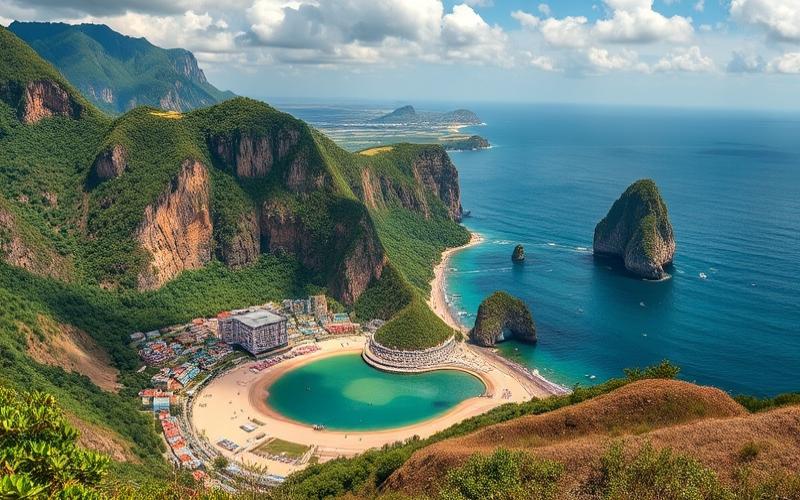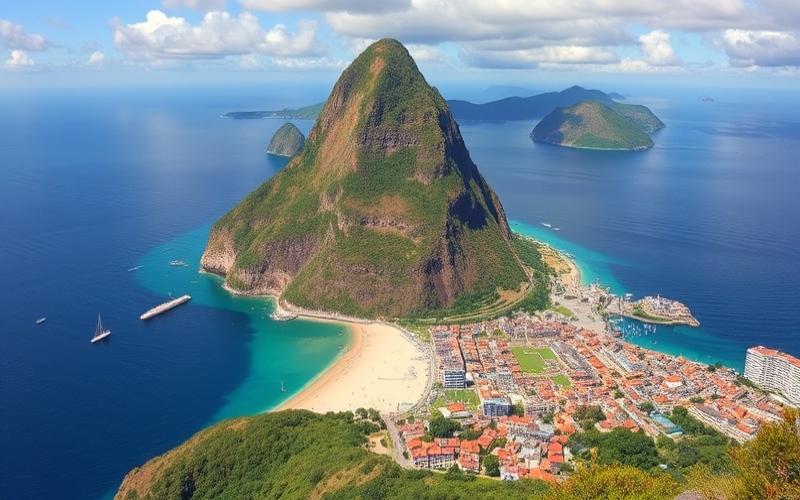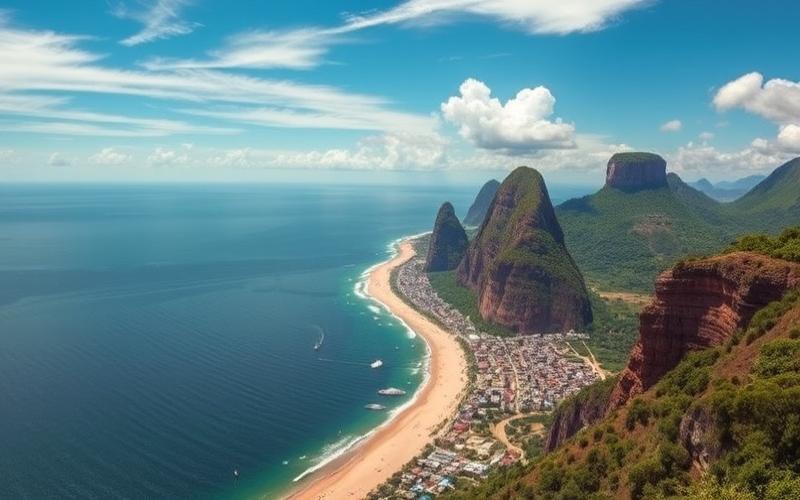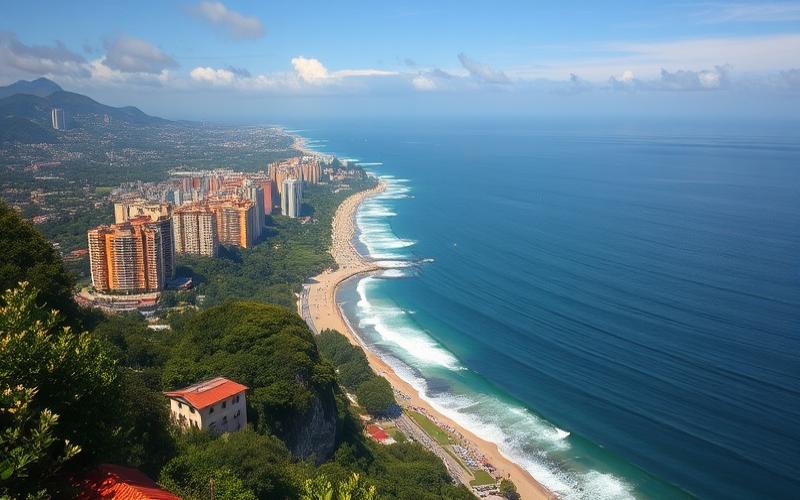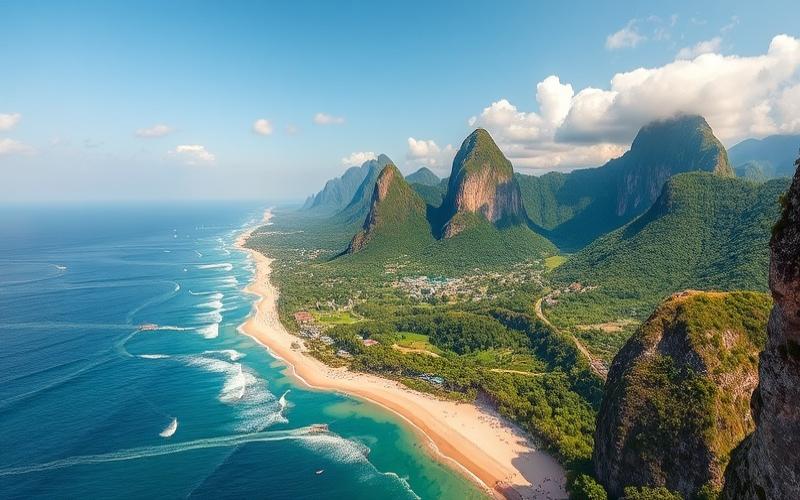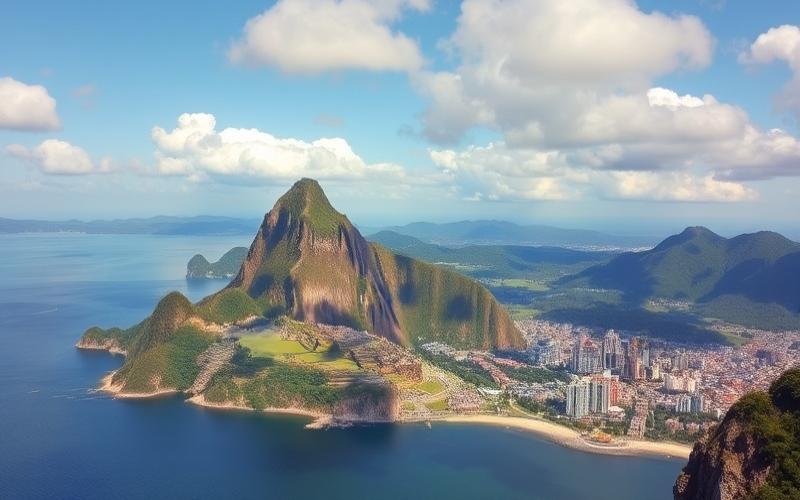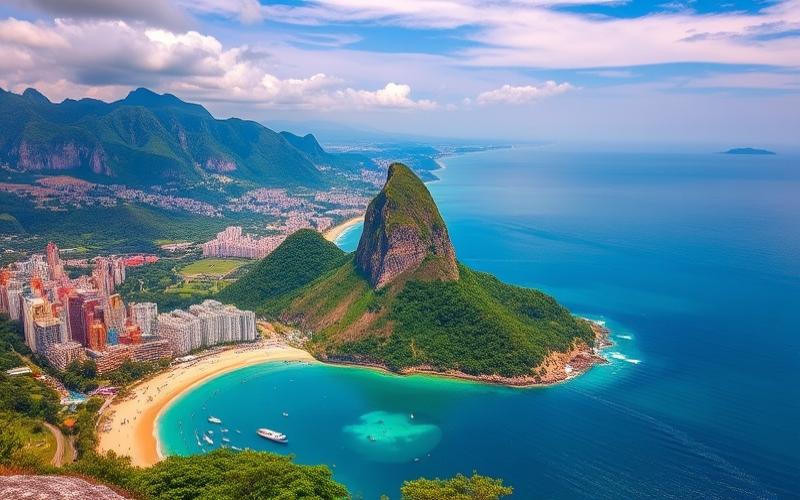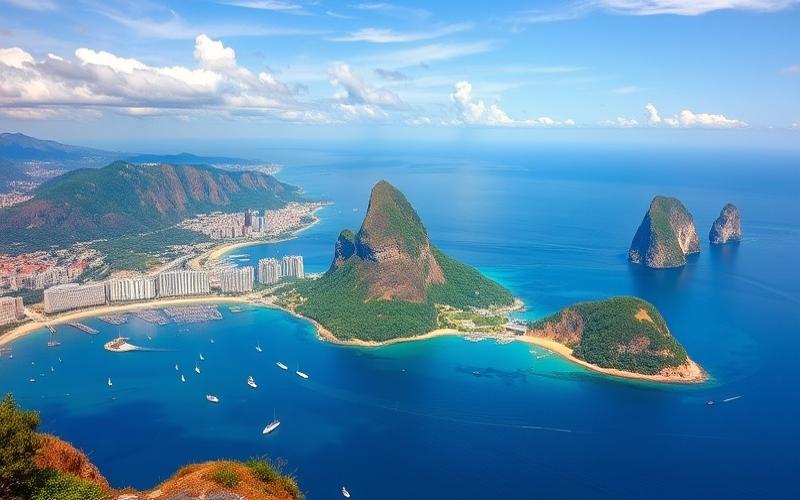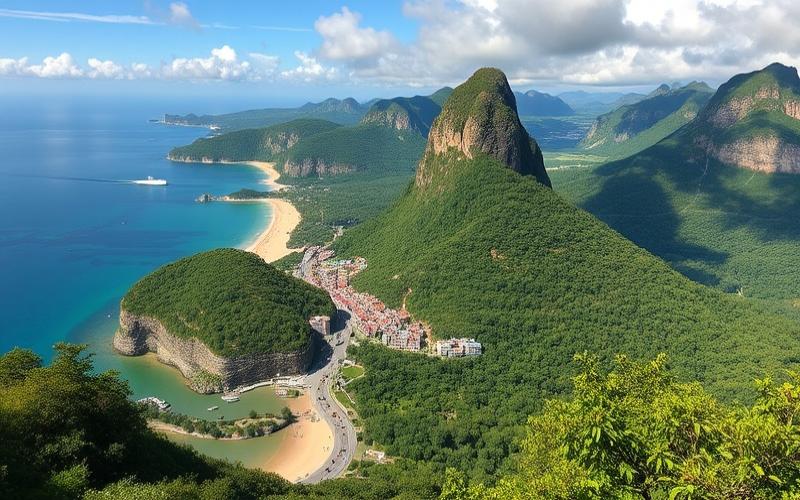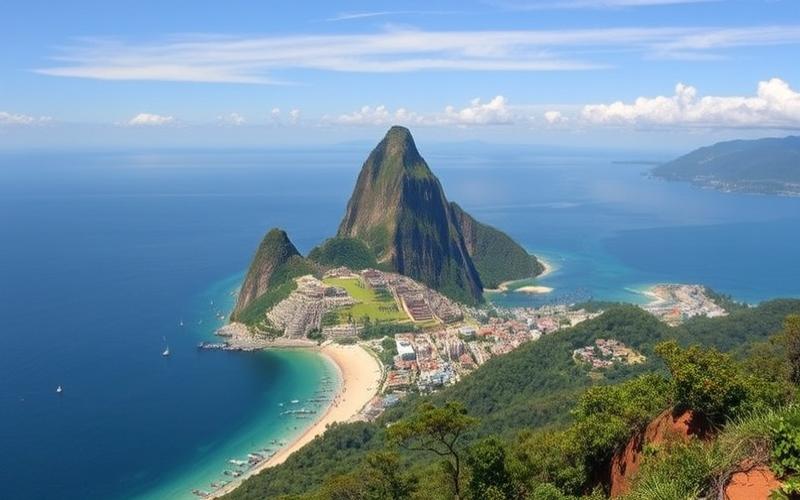
 Published on and written by Cyril Jarnias
Published on and written by Cyril Jarnias
Brazil, Latin America’s largest economy, represents a true crossroads of opportunity for global investors. With impressive growth in diverse sectors such as agribusiness, renewable energy, and technology, the country has distinguished itself through dynamic economic diversification that offers numerous investment opportunities. Although the global economic climate remains uncertain, Brazil continues to attract investors thanks to its abundant natural resources and skilled workforce. This article delves into these promising sectors, revealing strategic growth perspectives that could shape the Brazilian economy in the coming years.
Analysis of Economic Trends in Brazil
Analysis of Economic Trends in Brazil (2024-2025)
| Sector | Recent Performance (2024-2025) | Policies and Impacts | Challenges and Opportunities |
|---|---|---|---|
| Agriculture | Contraction of -3.2% in 2024, after years of strong growth. Unfavorable weather conditions. First half of 2025: recovery driven by global demand and modernization. | Support for modernization and irrigation via PAC. Incentives for sustainable agriculture. | Climate vulnerability. Opportunity in ag-tech and green transition. |
| Manufacturing Industry | Growth of 3.3% in 2024, moderate contribution to GDP. Momentum in food processing, automotive, and chemicals. | Public and private investments via Novo PAC (1.7 trillion BRL over 4 years). Goal of neo-industrialization and innovation. | High financing costs, international competitiveness. Revival expected through green reindustrialization. |
| Energy | Expansion of renewables (hydro, solar, wind). Major investments, particularly in solar (+25% installed capacity in 2024). | National program for energy transition, tax incentives for renewables. | Dependence on hydropower (drought vulnerability). Strong opportunity for foreign investors in renewables. |
| Information Technology | Growth exceeding 5%/year. Dynamic startup ecosystem (fintech, agritech, e-commerce). | Support for innovation (startups, tech hubs, favorable taxation). Policies for digitalization of public services. | Shortage of skilled labor, uneven digital infrastructure. High growth potential, particularly in AI and cybersecurity. |
Recent Government Policies:
- Novo PAC (Growth Acceleration Program): 1.7 trillion BRL in public and private investments 2023-2026, focused on infrastructure, green transition, innovation, and social inclusion.
- Social Support: Extension of Bolsa Família and BPC, supporting consumption and poverty reduction.
- Energy Transition: Ambitious goals for renewable mix, incentives for foreign investment and decarbonization.
Recent Economic Trends:
- GDP Growth: 3.4% in 2024 (above expectations), slowdown projected to 2-2.4% in 2025 according to IMF and market.
- Investment: Growth of 7.3% in 2024, share of GDP raised to 17%.
- Household Consumption: +4.8% in 2024, stimulated by dynamic labor market.
- Unemployment: 6.2% end of 2024, historically low level.
- Inflation: 3.7% in 2024, under control but potential pressures depending on monetary policy.
Business Climate and Innovation:
- Strengths: Macroeconomic stability, innovation dynamics, vast domestic market, public support for strategic sectors.
- Challenges: High interest rates, regulatory complexity, real volatility, dependence on global context (Chinese demand, geopolitics).
Labor Market:
- Continuous improvement, historically low unemployment.
- Increase in real income (+4.1% in 2024).
- Tensions in certain skilled professions, particularly in tech.
Sustainable Development:
- Focus on green transition and circular economy (PAC objectives).
- International pressure on deforestation and ESG governance.
- Growing opportunities for sustainable investments.
Global Fluctuations and COVID-19 Impact:
- Brazil’s resilience during the pandemic, rapid recovery starting in 2023.
- Vulnerability to climate shocks (droughts, floods) and global demand.
- Increased sensitivity to commodity cycles.
Economic Forecasts (2025):
| Indicator | 2024 | 2025 (forecast) |
|---|---|---|
| GDP (growth) | 3.4% | 2.0% – 2.4% |
| Inflation (CPI) | 3.7% | ~3.8% |
| Unemployment Rate | 6.2% | ~6% |
| Investment/GDP | 17% | Stable to increasing |
| Trade Surplus | 4.2% of GDP | Stable to increasing |
Main Challenges for Investors:
- Climate risk and commodity volatility.
- Fluctuating BRL/US$ exchange rate.
- Political and administrative risks.
- Need to integrate ESG criteria into strategy.
Major Opportunities:
- Tech and digital services market.
- Green infrastructure and renewable energy.
- Sustainable and modernized agribusiness.
- Domestic consumption supported by social and demographic dynamism.
Global Perspectives:
Brazil, despite an expected slowdown in 2025, remains one of the most dynamic and resilient emerging economies, with strong opportunities for investors in innovative and sustainable sectors.
Good to Know:
Recent Brazilian government policies favor energy transition and technological innovation, thus creating investment opportunities in renewable energy and tech sectors, despite challenges posed by fluctuating global demand post-COVID-19. Investments in sustainable agriculture are experiencing notable growth, supported by labor market resilience and the commitment to foster sustainable development.
Promising Sectors for European Investors
Promising Sectors for European Investors in Brazil
| Sector | Specific Opportunities | Current Trends and Perspectives |
|---|---|---|
| Agriculture | Export of agricultural products (soybeans, coffee, sugarcane, oranges, beef and poultry) | The sector represents nearly half of the country’s exports; strong global demand; presence of a developed supply chain. |
| Renewable Energy | Investments in solar, wind (especially offshore), green hydrogen and biofuels | 83% of electricity produced is already renewable; new regulatory frameworks facilitating sustainable energy development; over 100 billion USD in investments planned by 2029. |
| Technology & Innovation | Innovative startups in fintech, agritech and healthtech; technology transfers via international partnerships (e.g., Airbus, Framatome); accelerated digital development driven by a young and connected population. | Brazil ranks 50th out of 133 in the 2024 Global Innovation Index; dynamic tech hubs in São Paulo and Rio de Janeiro. |
| Retail & Franchising | Rapid expansion of franchises due to middle-class growth; opportunities in e-commerce and physical networks adapted to new consumption habits. | Strong urbanization supporting modern commerce; sector dynamism with local adaptation of European models. |
| Infrastructure | Major projects in transport (airports, seaports), highways, urban sanitation – often via public-private partnerships or government concessions. | National program for massive infrastructure investment to modernize existing network; increased need following urban growth. |
Recent Concrete Examples
- Solar development with several giga-parks inaugurated since 2023.
- Significant annual increase in agricultural exports to Europe.
- Continuous growth in the number of tech incubators hosting European startups.
Government Policies Favoring Foreign Investment
- Targeted tax incentives for strategic sectors: local/national tax relief for FDI.
- Facilitated access to public or mixed financing.
- Equal treatment granted to foreign investors in most economic sectors.
Potential Challenges
- Complex regulation (heavy/complicated tax system).
- Frequent bureaucratic delays in administrative procedures.
- Economic volatility linked to global cycles and occasional political instability.
- Specific sectoral restrictions: limited rural ownership for foreigners, increased controls on media/telecoms/health.
Summary List
- Agriculture/agribusiness: national priority + strong export potential
- Renewable energy: regional leadership + strengthened legislative support
- Technology/startups: accelerated innovation + growing international integration
- Retail/franchising: dynamic domestic market driven by urban middle class
- Infrastructure: ambitious national program + active search for European expertise
Brazil combines a colossal domestic market with progressive openness to foreign investors in its strategic sectors — but requires a fine understanding of the local regulatory context as well as rigorous anticipation of macroeconomic risks specific to the continent-country!
Good to Know:
European investors can capitalize on the rapid expansion of solar and wind energy thanks to Brazilian tax incentives, while urban technological innovations, although promising, must navigate a complex regulatory framework.
Impacts of Economic Policies on Investment
Main Economic Reforms and Influence on Investment Environment
Recent decades have been marked by major reforms in Brazil aimed at improving the investment environment. Among the most notable are:
- Tax Reform (2023-2024): Merger of five taxes into a dual VAT (federal and state), aiming to simplify a notoriously complex tax system and increase business productivity. The cumulative VAT rate reaches 25%, one of the highest in the world. This simplification contributed to an improvement in the country’s credit rating and is expected to enhance attractiveness for investors by reducing bureaucracy and clarifying the rules of the game.
- Public Accounts Reform (2023): Introduction of a new fiscal rule allowing for increased spending above inflation, but under strict guidelines, replacing the ceiling established in 2017. Stated objective: return to fiscal balance.
- Public Spending Cap (2016): This measure helped control debt and inflation, laying the groundwork for macroeconomic stability conducive to private investment.
- Trade Opening: Signing of major trade agreements, notably with the European Union, offering new export perspectives, particularly for agribusiness and manufacturing.
Structural Fiscal, Monetary and Trade Policies
- Taxation: The tax reform aims to alleviate administrative complexity, reduce uncertainty for investors, and improve business competitiveness.
- Monetary Policy: Periods of high interest rates have often hindered private investment, but recent inflation stabilization has allowed for monetary policy easing, favoring investment recovery.
- Trade Policy: Efforts towards international opening and diversification of trade agreements aim to further integrate Brazil into global value chains.
Examples of Particularly Affected Sectors
| Sector | Impact of Economic Policies |
|---|---|
| Agriculture | Benefits from trade opening and the EU-Mercosur agreement. More stable fiscal environment encourages investments in modernization and farm expansion. |
| Renewable Energy | Public incentives and geographical potential (bioenergy, wind) make Brazil a hub for capital, particularly foreign, in this sector. |
| Technology | Reforms foster growth of the tech ecosystem, although high taxation remains a relative constraint. Public initiatives support innovation and investment in startups. |
Economists’ Views on Policy Effectiveness
- Economists praise tax simplification and fiscal discipline as essential levers to restore investor confidence.
- Stability regained after the 2014-2017 crisis enabled growth exceeding expectations, with GDP rising 2.9% in 2023.
- Structural reforms are deemed indispensable but not yet sufficient to guarantee strong and sustainable growth. Challenges persist, particularly regarding bureaucracy, legal security, and cost of capital.
Persistent Challenges and Opportunities for Investors
Challenges:
- Administrative and tax complexity, despite recent reforms.
- High level of consumption taxation.
- Recurrent political and social uncertainties.
- Still insufficient infrastructure in some regions.
Opportunities:
- Growth potential in agriculture, renewable energy, and technology.
- Vast and dynamic domestic market.
- Gradual improvement in business environment thanks to ongoing reforms.
Brazil’s recent economic policies, although still in the implementation phase, pave the way for a more stable, transparent, and attractive investment environment, while leaving room for significant progress.
Good to Know:
Recent economic reforms in Brazil, such as tax adjustments and export incentives, have boosted investment in renewable energy, although challenges remain in economic stabilization. Economists emphasize that despite these advances, the investment environment remains fragile due to currency fluctuations and bureaucratic slowness.
Future Opportunities for International Investments
Recent economic reforms in Brazil, notably the major ongoing tax reform, aim to simplify the tax system and increase transparency, which should enhance the country’s attractiveness for foreign investors.
The Brazilian government thus seeks to reduce the administrative burden and combat tax evasion, while offering a seven-year transition period to facilitate adaptation for foreign companies. This reform affects all economic sectors and is accompanied by a progressive deployment of digital tools and practical guides to assist newcomers.
Sectoral Perspectives:
| Sector | Main Opportunities |
|---|---|
| Renewable Energy | Brazil has major natural assets (hydropower, bioenergy, wind). Targeted tax incentives encourage the inflow of foreign capital in these areas. The country aims to strengthen its global position in these markets. |
| Agribusiness | The recently signed trade agreement with the European Union opens substantial prospects for agricultural exports (notably meat), subject to final ratification. Technological modernization of the sector also favors productivity and attracts international partnerships. |
| Information Technology | Regional tax incentives aim to attract startups and foreign companies to certain strategic zones; rapid development of the digital market creates fertile ground for collaborative investments in cybersecurity, cloud, or local fintechs. |
Government Initiatives Facilitating International Flows:
- Administrative simplification via generalized electronic invoicing.
- Partial or total exemptions on certain real estate investments in priority zones.
- Specific programs (industrial/agricultural free zones) offering temporary tax breaks.
- Multilingual practical guides disseminated by Receita Federal/consulates.
Possible Partnerships Between Local/International Actors:
- Joint ventures in agribusiness or green energy pilot projects combining foreign capital/local expertise.
- Technology transfers via joint R&D agreements with Brazilian universities.
- Increased use of the mixed SCI/holding model to fiscally secure real estate or industrial investments.
Importance of International Trade Agreements:
The Mercosur–European Union agreement could massively stimulate incoming FDI if ratified; it aims for progressive tariff reduction on manufactured/agri-food goods while establishing a stable legal framework for foreign investors.
Risks & Associated Challenges:
List of main risks:
- Persistent complexity of local law, despite planned simplifications: necessary adaptation to new digital/fiscal tools;
- Internal political uncertainty, likely to affect regulatory continuity;
- Macroeconomic volatility, exchange rate / inflation potentially impacting real profitability;
- Residual sectoral restrictions: purchase of rural land strictly regulated outside specific exemptions;
- Partial dependence on effective ratification of negotiated major trade agreements.
Key Takeaway: The current dynamic is very favorable for investors seeking diversified exposure within innovative or traditional growth sectors – provided they rigorously anticipate regulatory challenges and volatility specific to the local market.
Good to Know:
Recent economic reforms in Brazil, such as tax simplification, enhance attractiveness for foreign investments, particularly in renewable energy and agribusiness, while government initiatives and trade agreements facilitate capital entry, despite challenges related to economic volatility.
Disclaimer: The information provided on this website is for informational purposes only and does not constitute financial, legal, or professional advice. We encourage you to consult qualified experts before making any investment, real estate, or expatriation decisions. Although we strive to maintain up-to-date and accurate information, we do not guarantee the completeness, accuracy, or timeliness of the proposed content. As investment and expatriation involve risks, we disclaim any liability for potential losses or damages arising from the use of this site. Your use of this site confirms your acceptance of these terms and your understanding of the associated risks.

